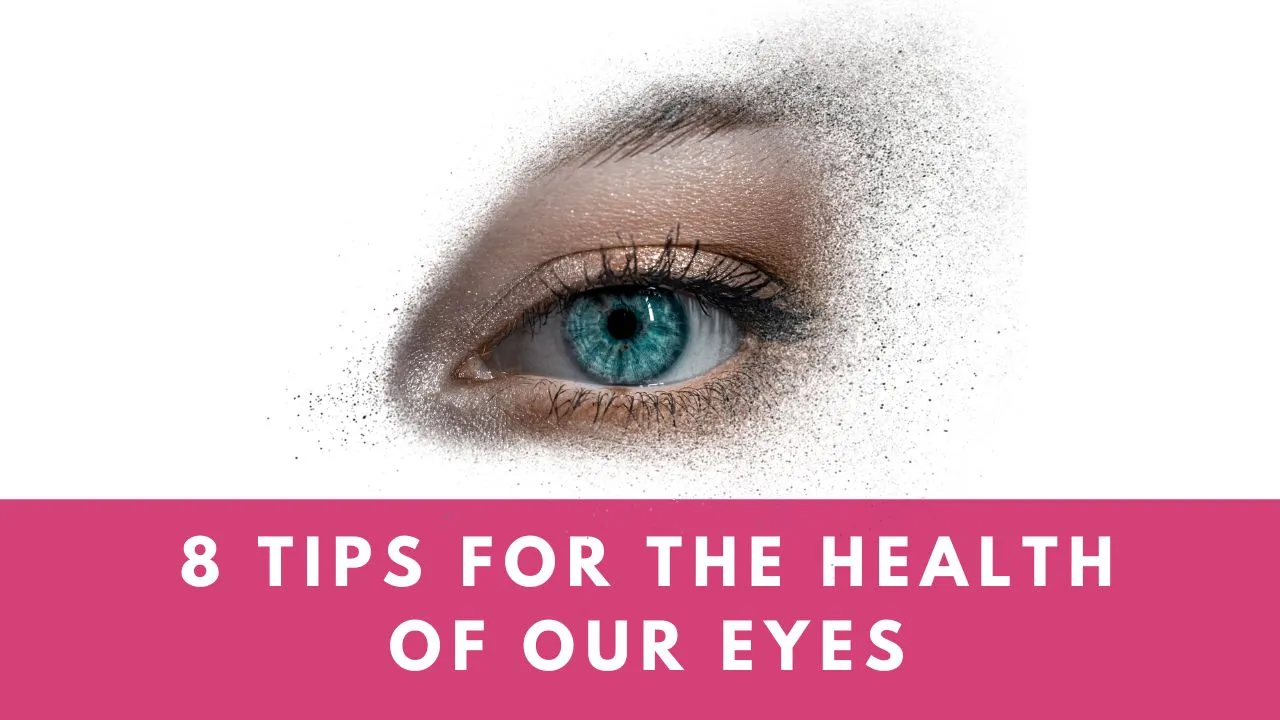We often compare the eyes to the “windows to the soul”. Bright eyes are the beginning of making a good impression on others. Nowadays, our eyes are becoming more and more fragile due to the pressure of work and study. Just like with us Health the more overdraw we have on our eyes, the greater the damage.
1. Do not rub your eyes with your hands.
When eyes feel uncomfortable, people unconsciously rub them with their hands. As everyone knows, hands contain the most bacteria. A study in the US found that unwashed hands can harbor hundreds of thousands of bacteria that can cause various eye diseases, particularly conjunctivitis. Therefore, never rub your eyes with dirty hands. If your eyes feel uncomfortable, wash your hands first, then close your eyes and press gently. If a foreign body is present, do not rub your eyes with your hands. You should first close your eyes and wait until a large amount of tears come out, then open your eyes and blink a few times. In most cases, the foreign body is washed out through tears.
2. Do not use eye drops indiscriminately.
Because many eye drops are available over the counter, many people simply drop a drop when their eyes feel uncomfortable, and the results become worse the more they use them. Do not use eye drops indiscriminately and use them appropriately. Red eyes do not necessarily have to be an inflammation, but can also be an allergy. If you use anti-inflammatory eye drops, it will become more serious. Generally, bulk eye drops containing more than 0.4ml contain preservatives. If the eyes are just dry and tired, we usually use preservative-free artificial tears.
3. Wear contact lenses with caution.
Contact lenses commonly used today are made of polymers and have poor oxygen permeability, which to a certain extent prevents the eyes from directly breathing oxygen and makes the cornea hypoxic. As soon as bacteria and viruses invade, they are particularly susceptible to infection. We therefore recommend that children wear orthokeratological lenses. Orthokeratology lenses are made of breathable hard contact lens materials, which can control the rapid growth of myopia without affecting the breathing of the cornea. Adults are recommended to wear RGP glasses, which not only ensure oxygen permeability, but also provide better optical correction effects for patients with high myopia, astigmatism and patients with anisometropia.
4. Never use your eyes for more than 40 minutes continuously.
Experts believe that proper eye habits are the most important thing to protect your eyes. If you use your eyes for more than 40 minutes at a time, rest for 10 minutes, look into the distance, or close your eyes and rest for a while so that your eyes don’t get tired and dry so quickly.
5. Wear sunglasses when going out
The eyes are easily affected by ultraviolet rays. The skin around the eyes not only ages, but also has a certain impact on vision. Therefore, you should always wear sunglasses when going out, especially in summer or when going to the sea or mountains where ultraviolet rays are relatively strong.
6. Eat more yellow and green vegetables.
Such as carrots, corn, tomatoes, broccoli, kiwi, etc., which are rich in lutein and zeaxanthin and can prevent functional eye degeneration.
7. Play table tennis and move your eyes more.
Experts said that when playing table tennis, the eyes rotate with the fast-moving objects, which can adapt and relax, delay presbyopia and prevent myopia.
8. Drink wolfberry and chrysanthemum tea regularly.
If you often look at the computer, your eyes get tired, so make yourself a cup of wolfberry chrysanthemum tea often. This tea improves vision, refreshes the brain, nourishes the liver and can relieve dry eye symptoms.





